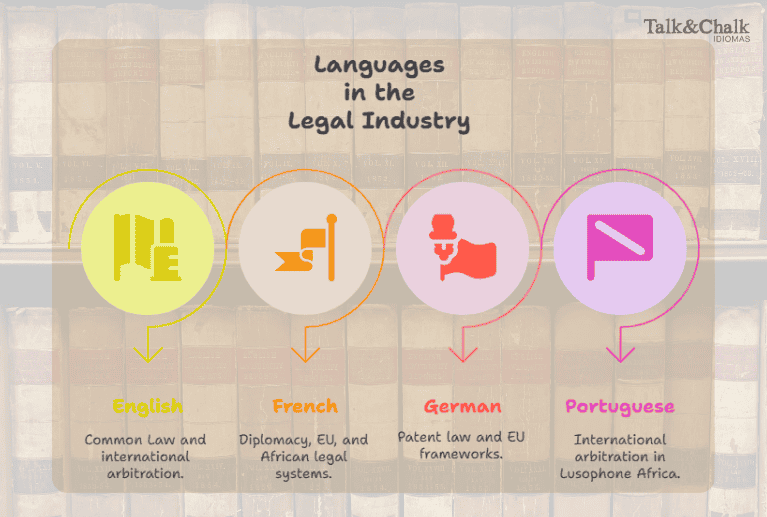In a globalized world, the legal profession transcends borders. Whether you aim to specialize in international business law, arbitration, diplomacy, or intellectual property, learning the right language can be a strategic game-changer. Here’s a deeper look at how languages align with legal fields worldwide: Languages for International Law
English is the dominant language of Common Law, international contracts, and arbitration. It’s used extensively in global jurisdictions such as the U.S., U.K., India, Canada, and Singapore. Mastery of legal English is essential for transnational corporate law, mergers, and finance.
French is crucial in diplomacy, the EU legal framework, and African law. It’s a working language in institutions like the UN, ICC, OECD, and is vital for lawyers dealing with Francophone Africa. French civil law principles underpin many African countries’ legal systems.
German is important in patent law, EU regulation, and industrial law across the DACH region. German companies often require legal professionals with knowledge of engineering, innovation, and compliance in their native language.
Portuguese connects professionals to Brazil, Portugal, and Lusophone Africa. It is essential for international arbitration, energy law, infrastructure, and development projects in Angola, Mozambique, and beyond. Languages for International Law


